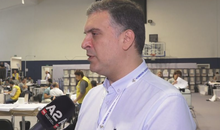
 Flash News
Flash News
Accident on the Manzë - Gjiri i Lalzit axis, 4 young people injured, one of them in serious condition
Evacuation of 5 Albanians from Israel, 3 of them arrive in Albania
Appeal of the Criminal Court of Kosovo returns the former prosecutor of Saranda to prison
Accused of concealing assets, the Appeal Court of Criminal Appeals upholds the sentence for Fatos Tushe
3 thousand euros to favor the perpetrator of an injury in Dibër, SPAK takes the Judicial Police officer and 3 others to trial
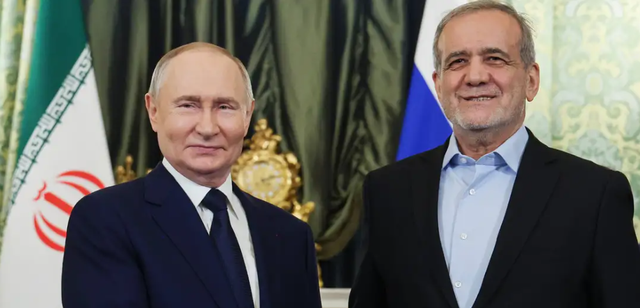
Since Israel launched its latest attacks on Iran's nuclear infrastructure, Russian President Vladimir Putin has been in contact with world leaders regarding the conflict.
Shortly after Israel's attacks began last Friday, Putin spoke with both Iranian President Masoud Pezeshkian and Israeli Prime Minister Benjamin Netanyahu, the Kremlin said.
In a statement on the Kremlin website, the Russian leader "expressed his condolences to the leadership and people of Iran for the numerous human casualties" and "stressed that Russia condemns Israel's actions, which were carried out in violation of the UN Charter and international law."
The next day, Putin again condemned Israel's operation during a phone call with US President Donald Trump, a staunch supporter of Netanyahu.
However, despite Russia's deepening alliance with Iran, the Kremlin is unlikely to offer military assistance to its strategic partner.
Moscow's golden deal with Tehran
Given the economic ties between Russia and Iran, Putin's rebuke of Israel for attacking the Islamic Republic comes as no surprise.
Iran has long been a close partner of Russia, not least because Western democracies have imposed harsh sanctions on both countries. Iran also recently joined the BRICS, a group of non-Western emerging economies that Russia helped establish.
Their relationship became even closer after Russia launched a full-scale invasion of Ukraine in February 2022. Western allies accused Iran of supplying Russia with military drones, which were eventually used to attack Ukrainian civilian infrastructure. According to media reports, Moscow may have paid for the drones with at least 1.8 tons of gold bullion, worth about $104 million, transferred to the Iranian company Sahara Thunder. Iran may also have asked Russia to help it carry out its nuclear program.
Analysts believe that Moscow would not want to lose such a reliable partner.
"The Kremlin is acting according to an old Quranic principle: 'Fight and fight, but do not trespass,'" Ruslan Suleymanov, a Middle East analyst based in Cairo, Egypt, tells DW. "In other words, Moscow, which has its own interests and presence in the Middle East, would prefer to avoid any kind of uncontrollable chaos in the region."
Why Russian military aid to Iran is impossible
Following the launch of Israel's attacks on Iran, the Iranian parliament ratified the Comprehensive Strategic Partnership Treaty with Russia. The agreement was initially signed by the presidents of the two countries in January and was approved by the Russian parliament two months ago.
Despite its ambitious name, the treaty fails to create a mutual defense pact. It does not oblige either side to provide military assistance in the event of an attack. Instead, it simply commits both sides to refrain from aiding their adversaries.
Middle East analyst Marianna Belenkaya, who fled Russia after the outbreak of war in Ukraine and now resides in Israel, believes that Moscow is highly unlikely to offer Iran any direct military support, at least not in any official or public capacity.
"There is no need, especially since it is trying to restore or improve relations with Washington, although a behind-the-scenes involvement cannot be completely ruled out," Belenkaya reckons./ DW
Latest news


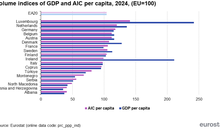


The Electoral College also rejects the DP's complaint for Kukës and Gjirokastra
2025-06-18 14:09:49
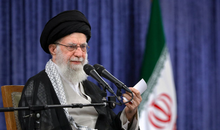

The College rejects the DP's request for invalidation of the elections in Lezha
2025-06-18 13:41:57

Evacuation of 5 Albanians from Israel, 3 of them arrive in Albania
2025-06-18 13:23:34
Amidst chaos and abuse, is Albania ready to offer sustainable tourism?
2025-06-18 13:01:56

SMILE.al - 5 years of history, the best version of success!
2025-06-18 12:42:25

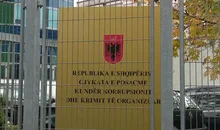

Causes of death in Albania, heart disease leads, suicides increase
2025-06-18 11:47:36
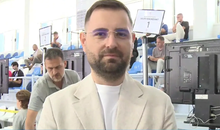


The claim for Jorgo Goro is postponed
2025-06-18 10:59:17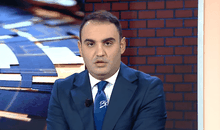

Gave candy and attempted to abuse minor, 60-year-old arrested in Maliq
2025-06-18 10:33:10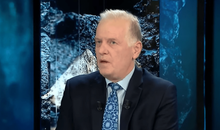
Israel, Iran, us and our world
2025-06-18 10:21:43
Vote recount for Tirana, Ilir Alimehmeti also present in the process
2025-06-18 10:13:14
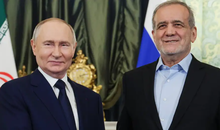
Why is Russia hesitant to help Iran in its conflict with Israel?
2025-06-18 10:00:55
Israel-Iran War/ US Embassy in Jerusalem Temporarily Closed
2025-06-18 09:42:06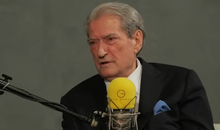
"I wanted to become a writer", Berisha recounts his dream left half-abandoned
2025-06-18 09:33:52
Author of several thefts, thief from Tirana caught in Durrës (NAME)
2025-06-18 09:24:20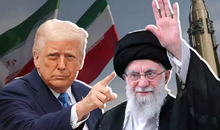

Taksa të larta dhe diskrimin, pse emigrantët po largohen përsëri nga Gjermania?
2025-06-18 09:02:32
Socially dangerous person, 27-year-old arrested in Pogradec
2025-06-18 08:51:39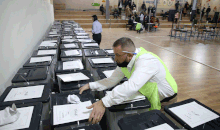
The recount of votes for the Tirana district begins today
2025-06-18 08:37:37

Horoscope, what do the stars have in store for you today?
2025-06-18 08:12:05

Morning Post/ In 2 lines: What mattered yesterday in Albania
2025-06-18 07:45:20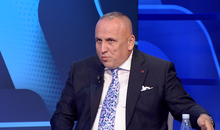

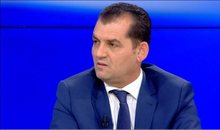
Former prosecutor: Criminal groups are more structured in Albania
2025-06-17 22:02:21



Korça/ A woman comes into contact with electricity
2025-06-17 20:55:40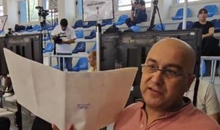

Death makes you neither good nor bad.
2025-06-17 20:38:05
Only 1 in 5 tourists sleep in apartments or hotels
2025-06-17 20:25:16

European Commission proposes complete ban on Russian gas imports
2025-06-17 19:46:58
'Serious concern': EU condemns government attacks on SPAK after Veliaj's arrest
2025-06-17 19:36:01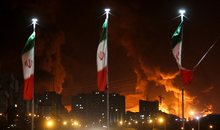
Fuel prices soar amid Israel-Iran tensions
2025-06-17 19:19:12


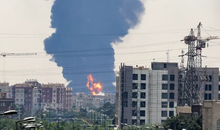
Iranian military says it struck Israeli military intelligence center in Tel Aviv
2025-06-17 18:17:27
The recount of 94 boxes of Gramsh and Peqin is completed
2025-06-17 18:08:47
Source: The world order is destroyed, how is the world being run today
2025-06-17 17:50:28
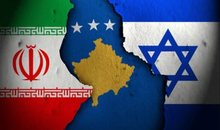
Albania and Serbia begin evacuations from Israel, Kosovo no clarification
2025-06-17 17:20:50
Exports have no power to recover, businesses suspend investments
2025-06-17 17:10:36
Atlanta United close to deal with Albania international center back
2025-06-17 16:59:03
The Bridge over the Buna hostage to bureaucracies
2025-06-17 16:50:46
'The White Horse of Celibashi'
2025-06-17 16:40:25
SP MP leaves SPAK, shuts up about the media: I can't speak
2025-06-17 16:29:15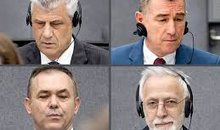
Why was Belgium chosen for the Special Court convicts to serve their sentences?
2025-06-17 16:21:46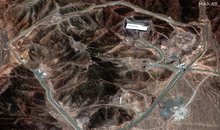
'Bunker-busting' bombs and Iran's nuclear base on a mountain
2025-06-17 16:18:53
Mother and daughter rape 14-year-old girl in Tirana
2025-06-17 16:08:15
Extreme temperatures, here are the foods you should eat to cope with the heat
2025-06-17 16:00:17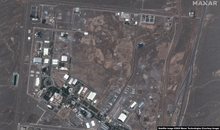


Cannabis was found on him, 20-year-old arrested in Vlora
2025-06-17 15:24:17
A dead body is found on "Bulevardi i Ri" in Tirana
2025-06-17 15:21:09
Fire in Elbasan, OST buildings engulfed in flames
2025-06-17 15:05:29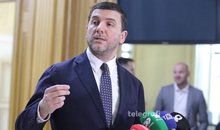

Egnatia learns the opponent in the Champions League
2025-06-17 14:55:26
Murder of Pjerin Xhuvani in Elbasan, Arbër Paplekaj requests conditional release
2025-06-17 14:45:24
The best cities to live in the world, Vienna falls from the throne again
2025-06-17 14:36:54
Plarent Ndreca summoned to the GJKKO
2025-06-17 14:31:16
Requests conditional release, hearing for Ervin Salianji postponed
2025-06-17 14:17:35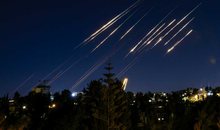
5 Albanians evacuated from Israel, expected to return to Albania
2025-06-17 14:06:31




Israel-Iran War/ Analysis by "The New Times": Who can endure more pain?
2025-06-17 13:10:39
Special Court leaves Veliaj in prison, SPAK presents new evidence
2025-06-17 12:57:51
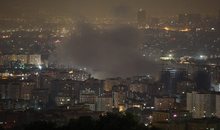
The conflict between Israel and Iran floods the Albanian media with fake news
2025-06-17 12:28:49




Part of a criminal group, 54-year-old (Name) arrested in Tirana
2025-06-17 11:17:42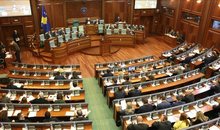
The constitution of the Kosovo Assembly fails for the 33rd time
2025-06-17 11:05:16
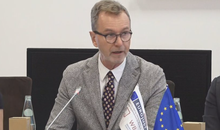
EU Ambassador: Criminal networks are using corruption to gain power
2025-06-17 10:37:45

Salianji requests conditional release, hearing to be held today at Fier Court
2025-06-17 10:15:40
